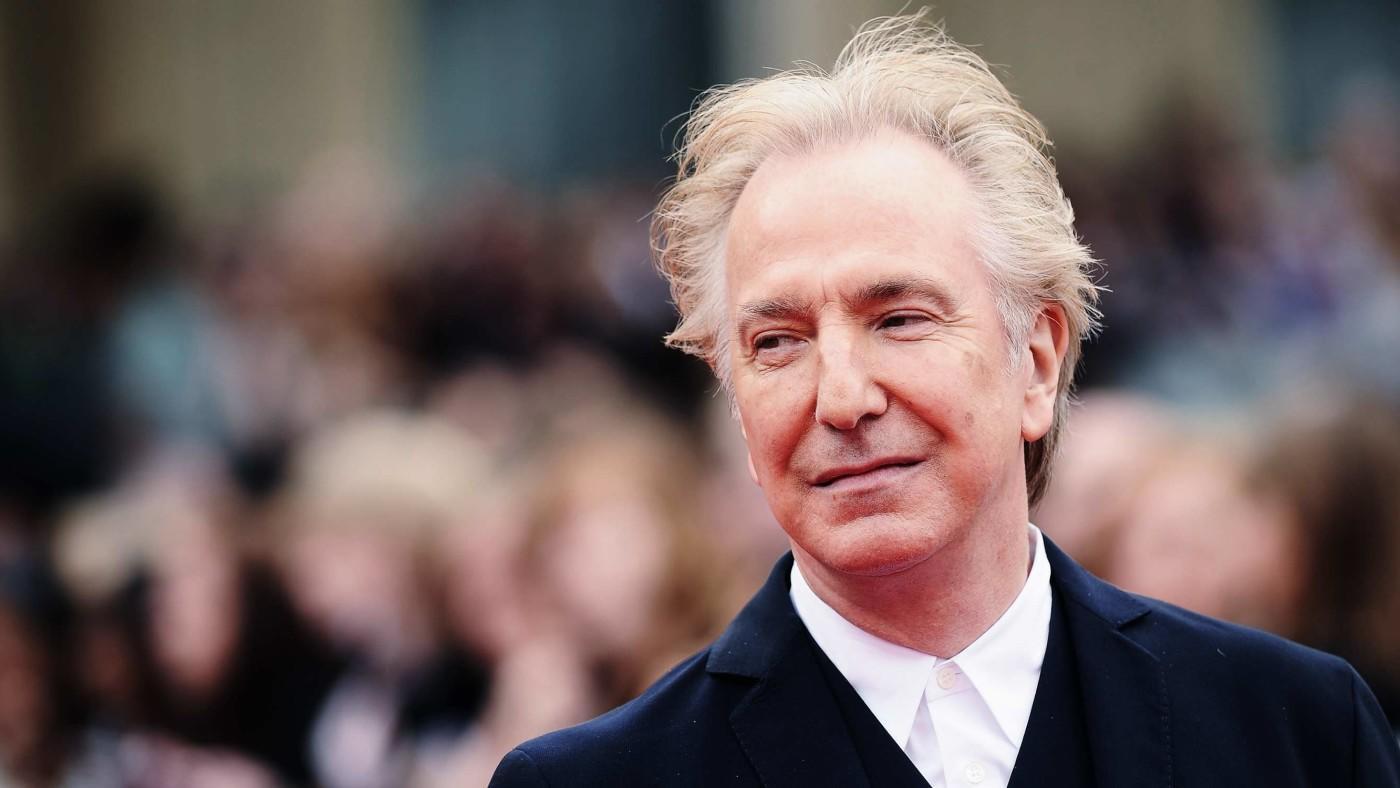Those of us who followed Alan Rickman’s career since the early 1980s, when he played the slimy Obadiah Slope in the BBC’s adaptation of Anthony Trollope’s Barchester novels, felt inclined to protest when the headlines – inevitably – read: “Harry Potter and Die Hard star dies”.
Rickman himself must have been a bit put out at being so often associated with villains: he was a fine romantic lead in Sense and Sensibility and Truly, Madly, Deeply; wonderful in comedy, in Galaxy Quest and Dogma; and did award-winning work in stage classics such as Les Liaisons Dangereuses, Antony and Cleopatra and Private Lives. And Severus Snape was an ambiguous role, though saturnine sneering was certainly his long suit.
But there’s no getting away from the fact that he was one of the all-time great baddies as Hans Gruber in Die Hard and scene-chewingly dastardly as the Sheriff of Nottingham in Robin Hood: Prince of Thieves.
In fact, Rickman didn’t often play villains after that (Judge Turpin in Sweeney Todd being a notable exception), but he was so effective in those roles that he may have been almost single-handedly responsible for a wider trend that has dominated Hollywood pictures since: if you want a baddie, get an Englishman in.
Of course, there had been a few others before him. Basil Rathbone was a very English Sheriff of Nottingham before Rickman (opposite Errol Flynn), Terence Stamp a memorable General Zod in the Superman films and James Mason did a nice line in wicked sophistication, though his characters were often not themselves English. Peter Cushing and Christopher Lee, other obvious forerunners, were a slightly different case, because in their films everyone was British – or Transylvanian.
For most of the 20th Century, there were ready-made villains to be had elsewhere. The early, deplorable racism of Red Indians, sinister Chinamen, cannibals and other savage natives gradually gave way, for obvious political reasons, to Germans and then Russians.
By 1988, when Die Hard came out, Glasnost was underway and Gruber was merely a German terrorist – or rather, terrorist turned “common thief”, as Holly McClane puts it, to get the memorable put-down: “I am an exceptional thief, Mrs McClane. And since I’m moving up to kidnapping, you should be more polite.”
For German, read English. When, in Die Hard with a Vengeance (the third movie and second-best in the series) Hans’s brother Simon was the villain, they sent for Jeremy Irons, who subsequently got to be horrid in lots of things.
He wasn’t alone, though. A whole slew of British actors got Hollywood careers out of Rickman’s first two Hollywood performances. The villain’s role in The Last Action Hero (directed by John McTiernan, who made Die Hard) was written for Rickman; when he turned it down, Charles Dance got the gig. Soon Tim Curry, Malcolm McDowall and Ralph Fiennes were at it too.
There was a certain logic when the villains were English: Jason Isaacs in The Patriot, say, or Tim Roth in Rob Roy, but soon baddies of all nationalities were English actors. Anthony Hopkins in Silence of the Lambs and Gary Oldman in Leon were, and Christian Bale’s role was even called, American psycho. Oldman, Alfred Molina and Mark Strong, all wonderful actors with enormous range, spent an awful lot of their time playing baddies.
This tendency was even sent up in a television commercial for Jaguar, where Tom Hiddleston, Ben Kingsley and Strong wondered why the English found it “so good to be bad”. And it was overwhelmingly the English, not the British. Irish actors like Pierce Brosnan, Liam Neeson and Daniel Day-Lewis weren’t invariably psychopaths; Scottish actors like Ewan McGregor or Gerard Butler were allowed to be heroes. Welshmen like Hopkins and Michael Sheen, just as in real life, sometimes counted as English, and sometimes didn’t.
Some people blame the American dislike of those typically English modes of expression, understatement and irony, which can so easily been seen as condescending, insincere or a mark of duplicity.
Others think it’s a by-product of the War of Independence, or a lingering resentment of colonialism – Americans, on the whole, are keen on their Scottish, Welsh or Irish ancestry, but you don’t often hear them boast of English forebears.
Better, surely, to think of it as a compliment – and a stroke of good luck for the British film industry. That’s one practical reason: a lot of Hollywood films are actually made in England, at Pinewood or Shepperton. But Rickman, though not alone, deserves credit for an instrumental role in the making of the English villain.
What Die Hard, since regarded by many as the best action movie ever made, demonstrated was that a really good actor, preferably one with a Shakespearean background, could do wonders with formulaic baddies and hackneyed lines. For Robin Hood: Prince of Thieves, a lousy film except for Rickman’s glorious turn, there’s another British stage tradition in evidence: the pantomime villain who quite blatantly invites the audience to boo every time he appears.
As that very English act Flanders and Swann put it, “The English, the English, the English are best, I wouldn’t give tuppence for all of the rest.” That the English can simultaneously give others the impression of thinking so, and at the same time revel in sending up that view of themselves, is one reason why they are best at being bad. Alan Rickman was the best of the worst.


